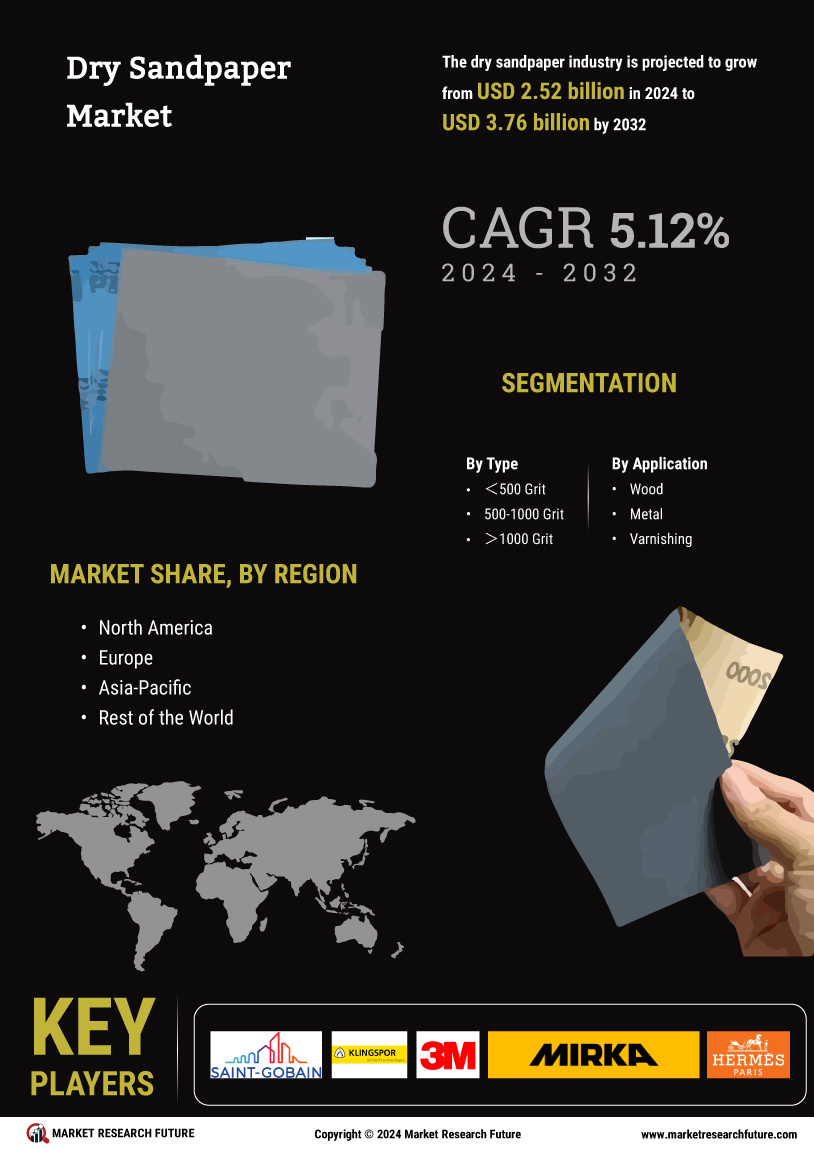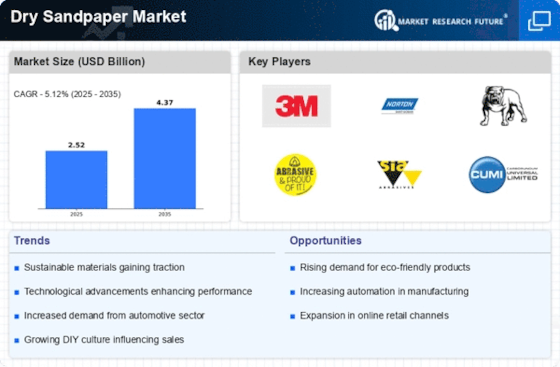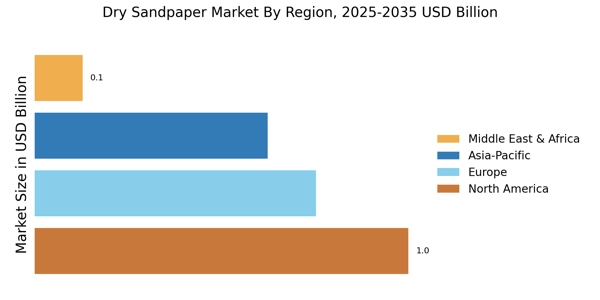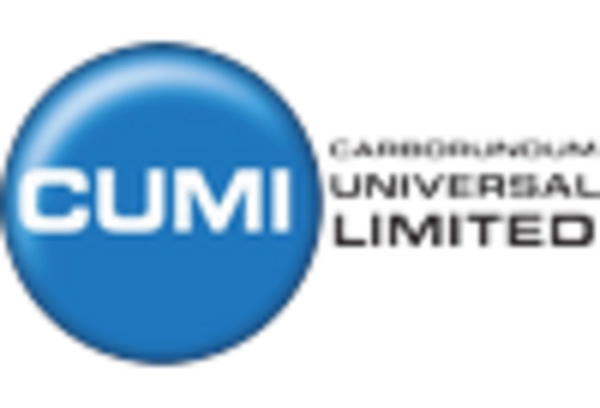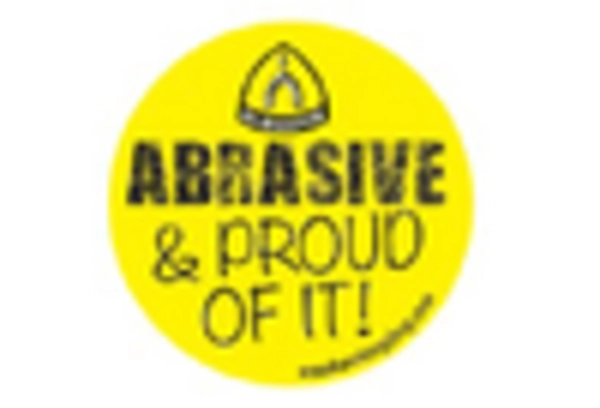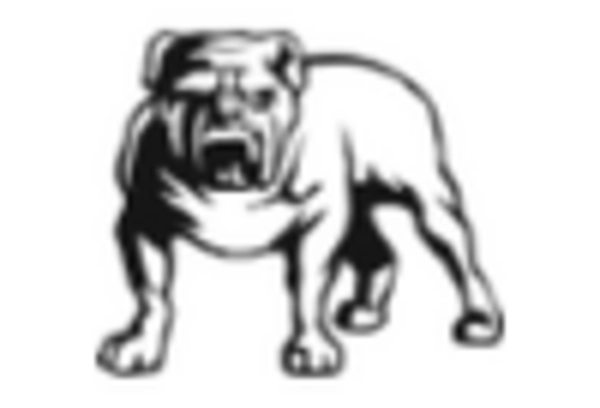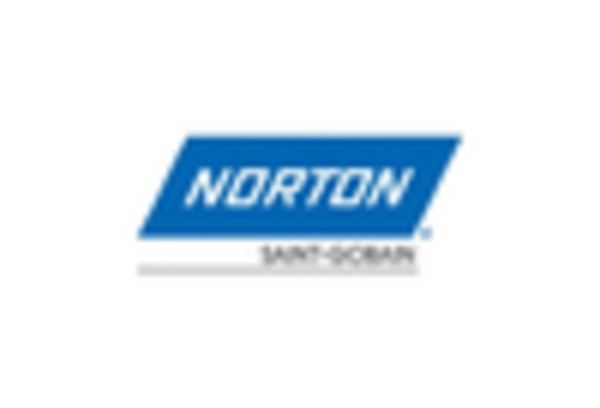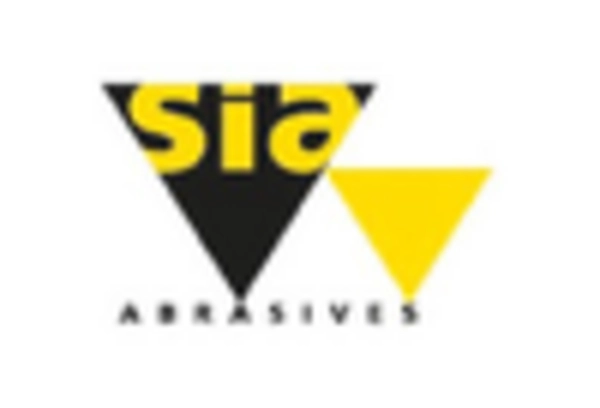Dry Sandpaper Market Summary
As per Market Research Future analysis, the Dry Sandpaper Market Size was estimated at 2.52 USD Billion in 2024. The Dry Sandpaper industry is projected to grow from 2.649 USD Billion in 2025 to 4.365 USD Billion by 2035, exhibiting a compound annual growth rate (CAGR) of 5.12% during the forecast period 2025 - 2035
Key Market Trends & Highlights
The Dry Sandpaper Market is experiencing a dynamic shift driven by sustainability and technological advancements.
- North America remains the largest market for dry sandpaper, driven by robust construction and automotive sectors.
- The Asia-Pacific region is emerging as the fastest-growing market, fueled by increasing DIY and home improvement trends.
- The <500 grit segment dominates the market, while the >1000 grit segment is witnessing rapid growth due to specialized applications.
- Key market drivers include rising demand in the construction sector and technological innovations in sandpaper production.
Market Size & Forecast
| 2024 Market Size | 2.52 (USD Billion) |
| 2035 Market Size | 4.365 (USD Billion) |
| CAGR (2025 - 2035) | 5.12% |
Major Players
3M (US), Norton Abrasives (US), Mirka (FI), Klingspor (DE), Sia Abrasives (CH), Carborundum Universal Limited (IN), Abrasive Technology (US), Saint-Gobain (FR)
